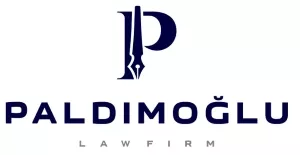- within Corporate/Commercial Law topic(s)
- in United States
- with readers working within the Metals & Mining industries
- within Corporate/Commercial Law, Immigration and Technology topic(s)
INTRODUCTION
Limited companies are regulated among corporations in the Turkish Commercial Code. Although the company has a separate legal personality, the limited company director has some responsibilities in certain matters. In this article, we will address the legal responsibilities of limited company directors, general and specific liability cases, the conditions for liability, and circumstances that exempt liability. We will then examine their responsibilities under criminal law and liabilities arising from the company's public debts.
LEGAL LIABILITY
The limited company director's liability arises when their negligent actions cause damage to the corporate legal personality. According to Article 553 of the Turkish Commercial Code, limited company directors are liable for the damages they cause to the company, shareholders, and creditors when they violate their obligations arising from the law and the company's articles of association with their negligence.
General Liability Cases
1. Liability Arising from the Contract
The liability of a limited company directors arises when a provision is included in the articles of association requiring them to fulfill certain obligations. Failure to fulfill these obligations leads to the limited company director's liability. Therefore, when preparing the articles of association, potential events, and possible problems should be carefully considered, and the provisions of the contract should be drafted accordingly. The best way to do it is to prepare the contract with a contract lawyer in Turkey.
2. Liability Arising from the Law
According to Article 553/1 of the Turkish Commercial Code, individuals or entities who transfer obligations and rights arising from the law or the articles of association to others are not liable for the actions and decisions of those who take over such duties and authorities, except when it is proven that they did not exercise reasonable care in their selection. If the transferor is not at fault, the liability belongs to the individuals to whom the authority was transferred. However, directors cannot be held liable for events that occur beyond their control.
According to Article 625/1 of the Turkish Commercial Code, the directors transferring their obligations and rights are obliged to monitor whether the transferee acts in accordance with the law, the articles of association, internal regulations, and instructions. Due to the regulations of these responsibilities in the law, limited company directors who do not show due diligence in such transfer and supervision may be held liable.
3. Liability Arising from Tort
A person who unlawfully and negligently causes harm to another person is obligated to compensate for that harm. Similarly, the director of a limited company is also liable for tort. According to Article 632 of the Turkish Commercial Code, the company is responsible for the torts committed by directors in the course of performing their duties related to the company. In this case, the limited company's liability is absolute, and it cannot be exempted from liability.
Under the Turkish Code of Obligations, a person who suffers harm from a tort has the option to claim compensation from the company or the person who caused the harm. If harm is caused jointly with more than one person, the provisions regarding joint liability apply between the company and the director. Thus, the limited company director's liability from tort can be pursued optionally in such cases.
4. Other Liability Cases
Notification in Case the Shareholder Number is Reduced to One
According to Article 574 of the Turkish Commercial Code; when the number of shareholders in a limited company is reduced to one, this situation must be reported to the directors in writing within seven days from the date of the transaction that resulted in this outcome. Until the end of the seventh day from the notification date, the directors must register and announce that the company has become a single shareholder, stating the name, residence, and nationality of this shareholder; otherwise, the directors will be liable for the damages that may arise.
Liability in Case of Actions Against General Assembly Decisions and Annulment Lawsuits in Bad Faith
In case an annulment or voidance lawsuit is filed against a company's general assembly decision in bad faith, the plaintiffs will be jointly liable for the damages suffered by the company. If the directors file it in bad faith, they will also be personally liable for the damages suffered by the company.
Liability in Mergers, Divisions, and Type Changes
According to Article 193 of the Turkish Commercial Code, directors who participate in mergers, divisions, or type changes are liable for damages caused to the companies, shareholders, and creditors.
Liability for the Unlawful Use of Domination between Parent Company and Subsidiary
If the domination between the parent company and the subsidiary is not properly executed within the operating year, or if an equal claim right is not granted within the specified time, each shareholder of the subsidiary may demand the reimbursement of the subsidiary's losses from the parent company, which is a limited company, and the directors who caused the loss. If it is proven that the transaction causing the loss could have also been experienced by independent company managers who observe the interests of the company in similar conditions with the diligence of a prudent manager, then no compensation will be awarded.
Specific Liability Cases
In addition to general liability, limited company directors also have specific liability cases. These cases will be examined as documents and statements being contrary to the law (TCC 549), false statements about capital and knowledge of payment insufficiency (TCC 550), manipulation in valuation (TCC 551), raising funds from the public (TCC 552), and other liability cases in this article.
1. Liability for Documents and Statements Contrary to the Law
According to Article 549 of the Turkish Commercial Code, those who prepare documents, commitments, statements, and guarantees related to the company's establishment, capital increase and decrease, merger, division, type change, etc., and cause damage due to their falsity, deception, forgery, concealment of the truth, and other violations of the law, and those who participate in these actions with negligence, are liable for the damages. The preparers are held responsible regardless of their fault, while participants are held responsible proportionally to their negligence.
2. Liability for False Statements about Capital and Knowledge of Payment Insufficiency
If the capital is not fully committed or paid as required by the law or the articles of association, but individuals declare that it has been committed or paid, and if they are at fault, the company officials will be deemed to have had these shares, and they will be jointly liable for the damages proportionate to their shares. Additionally, those who have approved the payment commitment of those who have committed to the capital and know that they lack the payment capacity will be held responsible for the damages resulting from the non-payment of the debt. Therefore, parties involved in such transactions should act with utmost care to avoid liability for limited company directors.
3. Liability for Misvaluation of Capital
According to Article 551 of the Turkish Commercial Code, those who assign higher values to assets or shares in kind or the business to be taken over compared to their market values, show the business or asset differently, or commit any other fraudulent act will be held responsible for the resulting damages. The liability in this case will be considered based on fault proportion.
CRIMINAL LIABILITY OF THE LIMITED COMPANY DIRECTOR
Limited companies are managed by directors; therefore, since it is legally accepted that the legal entities do not have criminal liability, the limited company directors will have it instead. Since directors are the ones managing the company, when defining their duties, criminal liability should be taken into account, and the distribution of responsibilities should be made accordingly. In criminal law, intent and negligence are crucial, and courts consider the responsibilities and division of duties of directors in determining the actual perpetrator. For this reason, limited company directors should take the necessary legal precautions to protect themselves from criminal liability and clearly define their authority. At this point, working with a corporate and commercial lawyer in Turkey will prevent future sentences and other penalties.
LIABILITY OF THE LIMITED COMPANY DIRECTOR FOR PUBLIC DEBTS
The liabilities of the directors for public debts are regulated under Article 35 of the Law on Collection of Public Receivables, Article 10 of the Tax Procedure Law, and Article 88 of the Social Insurance and General Health Insurance Law.
Under Article 35 of the Law on Collection of Public Receivables, limited company shareholders are directly responsible pro-rata basis based on their capital shares when the public receivable cannot be or will not be fully collected from the limited company. For the collection from the directors, it is a prerequisite that the public debt cannot be collected from the limited company.
According to Article 10 of the Tax Procedure Law, for the tax and related receivables of the limited company to be collected from the directors' assets, it is necessary that the directors' negligence is present, and that the tax and duties have not been paid by the company. Therefore, in case of tax debt, the company will be held responsible first, and if it cannot be collected from the company, then the directors' liability should be pursued.
According to Article 88 of the Social Insurance and General Health Insurance Law, if the premiums and other receivables are not paid without a valid reason, senior directors and representatives will be held liable. The directors can be exempted from liability by proving that the non-payment is based on a valid reason. Otherwise, limited company directors will be liable for the debts.
CONCLUSION
As seen, limited company directors have significant responsibilities. Whether knowingly or unknowingly, violating these responsibilities may result in sanctions. Therefore, especially before problems arise, preventive legal support should be obtained from an expert corporate attorney.
Originally published 05 July 2023
The content of this article is intended to provide a general guide to the subject matter. Specialist advice should be sought about your specific circumstances.
[View Source]


